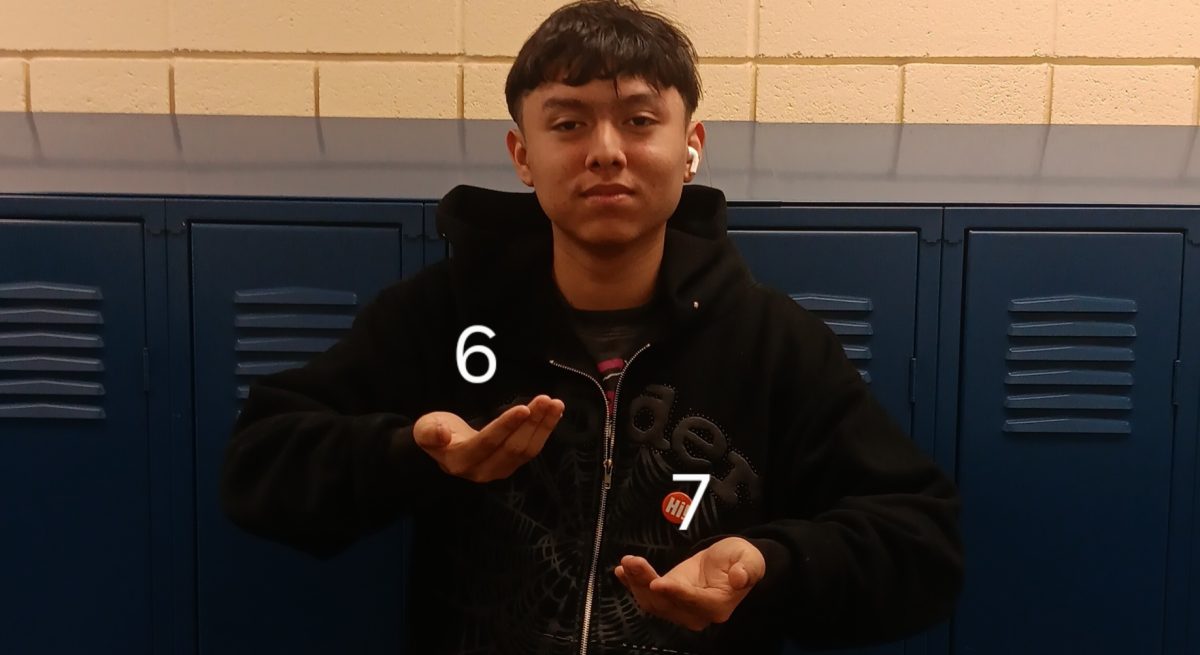The hidden illness
January 24, 2022
Very loud music, flashing lights, people all over the dance floor as they celebrate a marriage. While one person who can’t experience the event at all and can completely freak out moves himself into a different part of the building. “I had to move myself into a different part of the building so many times.” Once he feels like he can go back he carries on with the rest of the night. This is how it feels to have Asperger’s Syndrome.
Asperger’s Syndrome (AS) is a neurodevelopmental disorder with difficulties in social interactions and nonverbal communications. AS can include: restricted interests, desire for sameness, and distinctive strengths. Challenges of AS can be hypersensitivity (such as lights, sounds, tastes, etc), difficulty with the give and take of conversation, difficulty with nonverbal conversation skills (distance, loudness, tone, etc.), uncoordinated movements or clumsiness, anxiety, and depression. People with AS may experience symptoms differently but they certainly can experience all of these symptoms.
Matthew Wreschinsky is someone who struggles with Asperger’s Syndrome and feels the differences. “I found out on the 15th of September,” Wreschinsky said. He said that he was previously tested back in 7th grade and was then diagnosed with AS. Though his parents didn’t tell him until recently. “My parents just decided not to tell me,” AS has affected him with not being with everyone else.
Wreschinsky also said that holding eye contact is something that is a struggle with having AS. “If you find that somebody with AS is not holding eye contact, it’s not because they aren’t paying attention, it’s not because they don’t care. For us, it could actually be a little bit easier not to have eye contact with somebody when holding a conversation because it just makes us nervous,” Wreschinsky said. He goes on to explain that when trying to hold eye contact, it becomes harder to talk with the person you are talking to. Wreschinsky has done his research on AS a couple of times and explains that he found links to some of the mental illnesses he suffers from. “But it also causes things like depression, social isolation, things like that which I’m very familiar with,” Wreschinsky said. He has struggled with depression before but didn’t realize that AS was part of the problem. He knew once he found out AS can cause that, it was a link but some of the depression was environmental factors as well. “In my experience AS has seemed to make me more susceptible to it,” Wreschinsky said. He said he’s experienced more than once while only being 19 years old.
Wreschinsky said that he seems to be more socially awkward when it comes to social events. “I have had difficulties socially my whole life with just sticking to a small group of people instead of a big group, things like pep rallies or big sporting events,” Wreschinsky said. He said that he absolutely cannot stand sporting events. This is a difficulty for him. High school dances were not something that he favored either. “Dances in high school, I think the only one I went to was prom. I could not stand those loud, super constant noises. It’s awful to deal with” He explains that he feels that he is at odds with other people. “It’s been socially quite a bit where I’ve always felt that I’m a little more of an outsider,” Wrechinsky said. He doesn’t feel like he belongs in the world with everyone else.
Social cues are also something that Wreschinsky said he can’t recognize well. “Sighing in a certain way I’d not be able to pick up on that. Maybe crossing of the arms combined with a change in facial expressions I might be able to interpret,” Wreschinsky said. He said that a subtle change would be something difficult for him. He said that little changes that someone makes are difficult for him to completely understand and even recognize.
Wreschinsky has also said that he experiences outbursts of emotion but not in ways that others do. Sometimes others’ outbursts can be verbal or non-verbal. He experiences them in his head. “I think of myself in the moment doing something but then I don’t actually do it,” Wreschinsky said. He doesn’t act upon it the moment he thinks about it. Then let it go. When he feels that he will outburst in any way he tries to remove himself from the situation and calm himself down.
ADHD is more with being forgetful, daydreaming, making careless mistakes, difficulties with resisting temptation, trouble following rules, fidgeting, trouble sitting still, and impatience. ADHD also can be sudden outbursts without thinking and being careless. People with ADHD tend to find strategies to cope and help them so they become more focused. Sometimes doctors will recommend medication to treat ADHD helping to calm the person down and be focused.
So why are ADHD and Asperger Syndrome so commonly mistaken for one another? Looking back at the previous paragraph can lead people to think that both neurodevelopmental disorders are the same. While there are similarities in both neurodevelopmental disorders, there are certain behaviors that make them different. People with ADHD more struggle with keeping focus and being too hyper. While people with AS more struggle with social norms and cues in conversations.
Wrechinsky has seen how AS and ADHD have been compared but doesn’t think it’s right. He finds that it’s compared a lot and really believes that there are differences. He doesn’t want to feel compared to the rest of those who have ADHD.
Really the best way to help those who have AS is don’t treat them any differently. People who have AS are just trying to learn in the best ways as everyone else. Maybe they have struggles with social interactions but the best way to make them feel comfortable is to just come down to their level and understand how they feel. When you notice that something is wrong try best to talk with them and understand how they are feeling and what you can do to help them feel better. Simple things to help can change a lot for people with AS and allows for more people to understand how they feel and what they are feeling.




